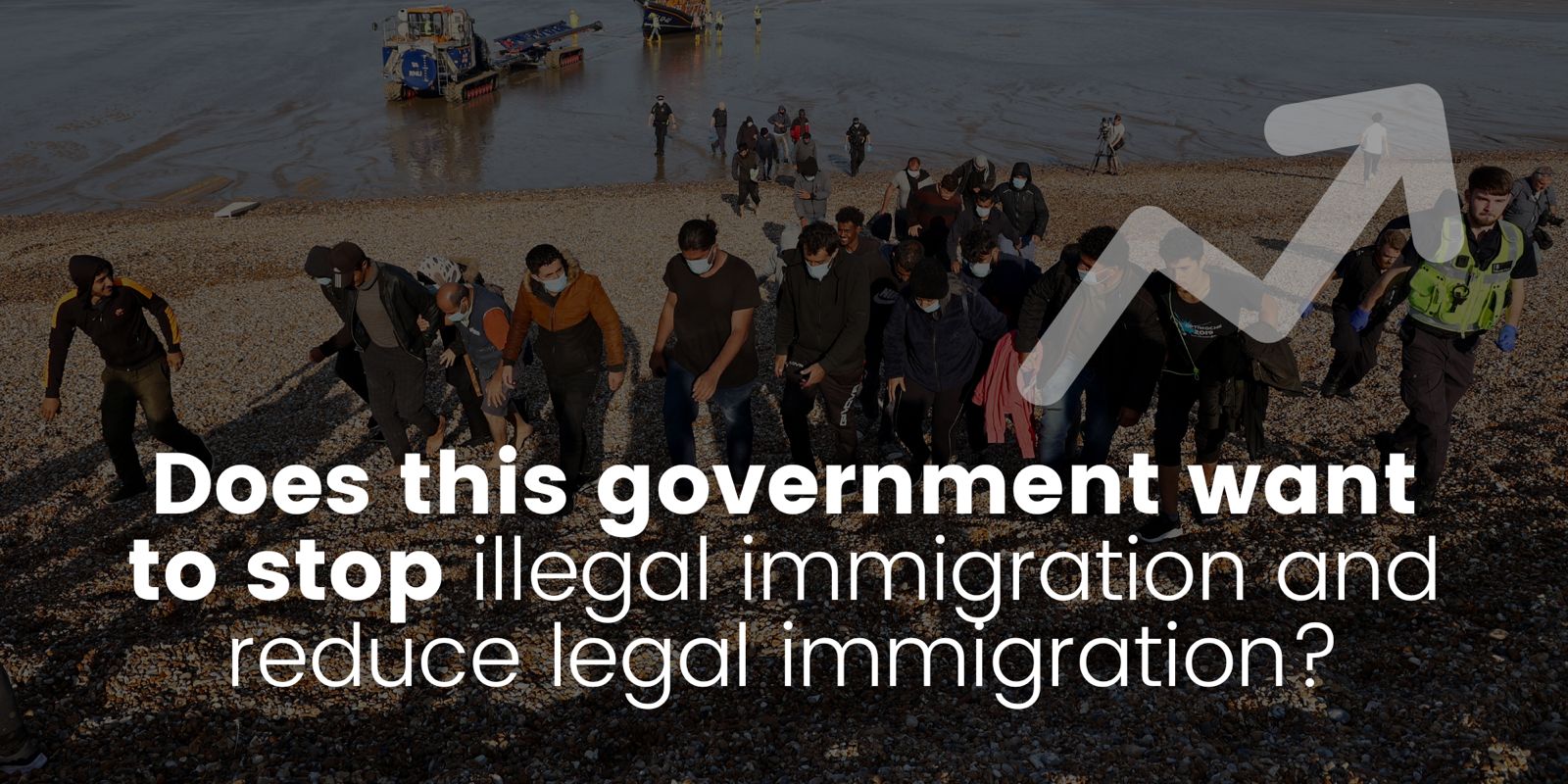
This is a preview of Migration Watch’s free weekly newsletter. You can read the full version here.
Please consider signing up to the newsletter directly, you can do so here and will receive an email copy of the newsletter every Friday as soon as it is released.
What a week. It began with Suella Braverman being sacked as Home Secretary, to be replaced by James Cleverly (in turn replaced by (the now Lord) David Cameron. This was followed by the Rwanda Plan being ruled unlawful by the Supreme Court and then Rishi Sunak scrabbling around to find a way out of the hole their Lordships had thrown him into.
Whatever the reasons were that lay behind the Home Secretary’s dismissal, we were dismayed by her departure. Suella Braverman had a clear understanding of the dangers posed by mass immigration and was prepared to say so. She had the courage to stand up to the deplorable people who attacked her with hideous, misogynistic and, at times, racist slurs.
It is ironic that in drawing attention to the failures of multiculturalism, the gap in the senior ranks of the Cabinet was filled by none other than the person who first said pretty much the same thing some years ago, namely one David Cameron. You’ll find what we said in reaction to Mrs Braverman’s sacking here. Her excoriating resignation letter would strongly suggest we haven’t heard the last of this brave woman.
Then there was the Supreme Court’s ruling. This judgement, the result of an 18-month long legal battle (during which 60,000 people have entered the UK by small boat), essentially, rested on the United Nations High Commissioner for Refugees’ evidence that Rwanda’s asylum system was unreliable and unsafe. The key point being that asylum seekers could potentially be returned to countries where they might be at risk of persecution.
Rwanda had made clear that this would not happen; a commitment that the UK Government had factored into the Memorandum of Understanding (MoU). However, the Supreme Court cast doubt on whether this agreement could be relied upon.
So, while the UK Government argued that Rwanda was safe, the UNHCR said it was not. In the end, it was a matter of the UK Government’s word against the word of the UNHCR and the Supreme Court opted to accept the word of the UNHCR.
So, what happens now?
This is a preview of Migration Watch’s free weekly newsletter. You can read the full version here.
Please consider signing up to the newsletter directly, you can do so here and will receive an email copy of the newsletter every Friday as soon as it is released.
